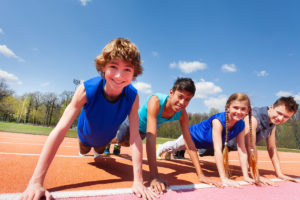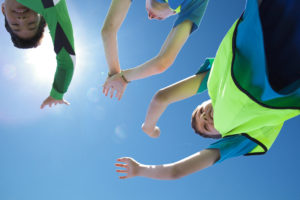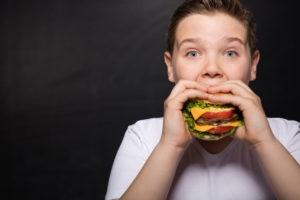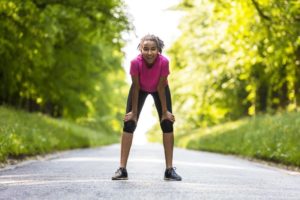Kids & Teens
BLinG-Health™: Black Leadership in Girls’ Health
Training adolescent black girls as peer physical activity leaders in high school promoted health, fitness and community, according to a small, qualitative study published in Journal of Healthy Eating and…
Why Kids Need More Water
Nutrition professionals have long known that the beverages our youth choose to drink can hugely affect their diet quality and health. Three new studies drive home the point that the best option comes from the faucet.
November 2019 Question of the Month: Supporting the Next Generation
What are you or your facility doing to support the next generation of fitness enthusiasts? Are you offering any kids’ physical activity programs at schools or other off-site community locations? Are you providing programs free to local youth—or, if fee-based, what are you offering and how are you reaching potential clients? Please share your success stories.
We want to hear from you! Email executive editor Joy Keller, jkeller@ideafit.com.
Significance of Kids’ Fitness
Fitness pros may want to put more emphasis on kids’ fitness to ensure that more adults choose an active lifestyle and become fitness enthusiasts.
Childhood Activity and Midlife Brain Fitness
Here’s one more solid reason to inspire kids to exercise. The secret to maintaining cognitive fitness later in life may lie in getting active while young and staying active throughout teen, young-adult and middle-aged years.
New York Public Schools Trim the Meat
If the influx of no-beef burgers into supermarkets hasn’t convinced you that plant-based eating has gone mainstream, then perhaps Monday’s fare at New York City school cafeterias will. Starting this fall, more than 1 million students enrolled in the city’s public school system are only finding vegetarian breakfast and lunch options in cafeterias as part of the Meatless Monday campaign, says New York City Mayor Bill de Blasio.
Teen Rebels Turn Away From Junk Food
We’ve long known that junk food marketing shapes the way our youth eat. After all, on any given day teenagers are exposed to a lot more advertisements for candy bars and soda than, say, cauliflower. Such is the power of food marketing on the growing brain. Now, a study in the April 2019 issue of Nature Human Behaviour has found that tapping into the rebellious inclinations of teenagers may get them to eat more salads.
Playing Team Sports Fights Depression in Boys
Participation in team sports not only helps children improve fitness and social skills; it’s also linked with development of the hippocampus region of the brain, according to research published in Biological Psychiatry: Cognitive Neuroscience and Neuroimaging (2019; doi:10.1016/j.bpsc.2019.01.011). In adults, lower hippocampal volume has been associated with depression for some time.
Social Media May Sway Kids to Eat More Junk
Any child active on social media is likely following one or more so-called influencers, and if those influencers are fans of chips and cookies, parents trying to persuade their kids to eat more veggies could be facing another hurdle.
Children’s Diets Worsen With Age
Rising obesity rates in American children suggest that their diets leave a lot to be desired. Recently, researchers with the USDA Agricultural Research Service explored young people’s diets using the Healthy Eating Index (HEI), which measures how well diets align with federal Dietary Guidelines for Americans.
Pilates Helps Adolescents
6-week Pilates program improved core muscle endurance and hamstring flexibility among adolescents between 9 and 19 years with a history of back pain. Research findings from a preliminary study published in Complementary Therapies in Clinical Practice (2019; doi:10.1016/j.ctcp.2019.01.006) showed that a 6-week Pilates mat exercise program with two 55-minute sessions per week can improve conditioning in both young males and young females.
Maternal Stress and Overweight Girls
The number of children with overweight or obesity—especially among kids younger than 6—is rising in modern societies. Being overweight before preschool increases the likelihood that children will develop obesity as they grow older.
Kids’ Inactivity: A Global Crisis
Children worldwide, in both developed and developing nations, are not engaging in enough physical activity, according to research published in the Journal of Physical Activity and Health (2018; 15 [S251]). The report evaluated global trends using data from 49 countries across six continents. Nations with the most success in supporting active children are Slovenia, Japan and Denmark; the least successful nations are Ethiopia, Venezuela and China.
Children Have Natural Muscle Endurance
A recent study shows that children are suited to endurance activities, not only because kids have fatigue-resistant muscles, but because they recover quickly from high-intensity exercise—even more quickly than trained adult endurance athletes. Researchers conducted the study to determine whether prepubescent children are metabolically comparable to well-trained adult endurance athletes, since it’s been established that children can complete repeated high-intensity exercise bouts more easily than untrained adults.
An Action Plan to Combat Adolescent Obesity
Health and fitness professionals can drive positive outcomes and minimize the risk adolescent obesity with these five “rules” for coaching.
Obesity Linked to Lack of Sleep in Childhood
Enforcing bedtime rules may be an important factor in helping kids maintain healthy weight levels. A comprehensive research review of 42 studies with 75,499 participants, conducted by University of Warwick researchers in Coventry, England, found that short sleep durations in infants, children and adolescents were a risk factor for gaining weight and developing obesity. Data analysis showed that children and teens who slept less than others of the same age gained more weight as they grew older and were more likely to become overweight or obese.
Young Talent in the Kitchen
If we want adults to eat a healthier diet, we should get them cooking more often when they’re young. That’s the conclusion of a report published in the May edition of the Journal of Nutrition Education and Behavior. The findings drew on data from the Project Eating and Activity in Teens and Young Adults longitudinal study in the Minneapolis-Saint Paul area.
To Grow Healthier, Happier Adults, Raise Fit Kids
Today’s inactive kids are tomorrow’s unhealthy adults. Our society will pay the price for young people’s profound lack of exercise if we fail to turn this trend around. Few behaviors more significantly influence child health than physical activity. Yet children and adolescents are not moving enough, at the expense of their own health as well as that of their communities. More needs to be done to support families and society in raising fit kids.
What Type of Exercise You Do as a Kid May Determine Your Weight as an Adult
According to new research, the kind of physical activity you do in childhood could predict whether you will be overweight as an adult.
Published in Medicine & Science in Sports & Exercise (2018; 50 [4],
709–14), the study examined the relationship between adult weight gain and the following types of exercise in childhood: running, sports and/or fitness/dance.
A for Effort
client: Kent Denver School Students | personal trainer: Laura Bordeaux, strength and conditioning coach, Kent Denver School location: Englewood, Colorado
A complete course load. Think of it as core curriculum—literally. The Kent Denver School, a college-preparatory institution outside of Denver, offers a comprehensive educational experience that emphasizes both academics and sports. That’s where Laura Bordeaux comes in.



















